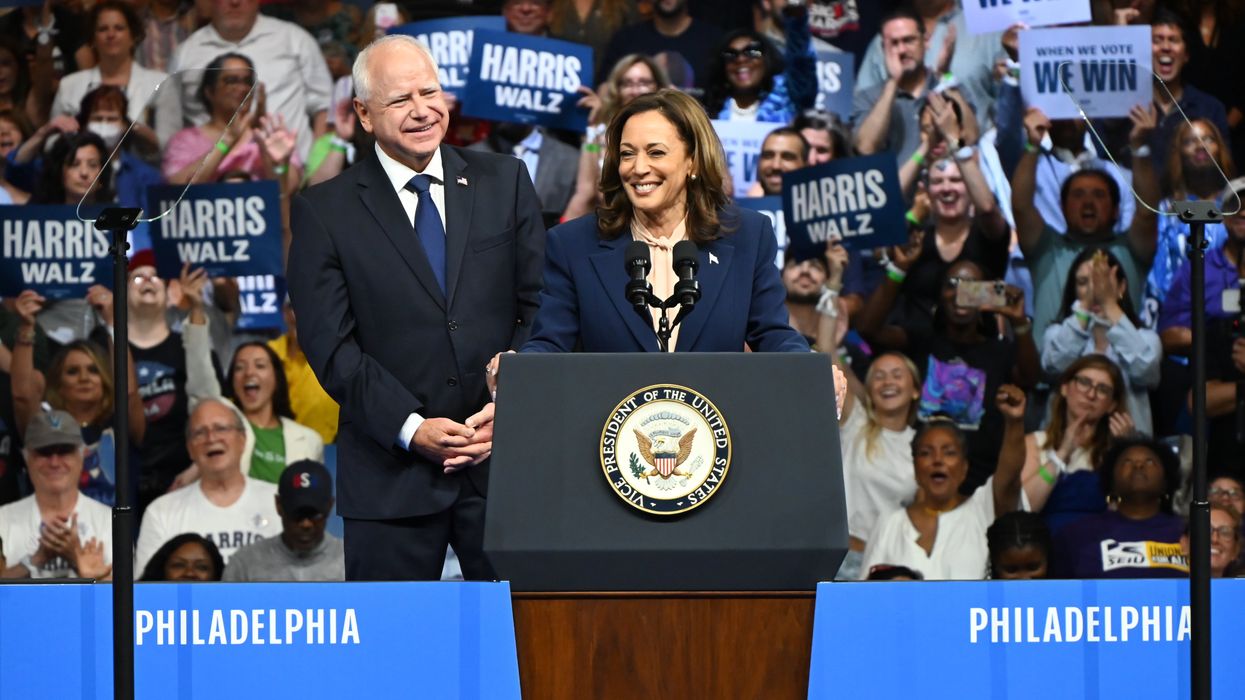Gorrell is an advocate for the deaf’s rights, a former Republican Party election statistician, and a longtime congressional aide.
Supporters of gerrymandering reform are wondering whether Vice President Kamala Harris and her running mate, Minnesota Gov. Tim Walz, will support the Fair and Impartial Redistricting for Meaningful and Accountable Political Systems Act.
Democratic Rep. Wiley Nickel's bill, more commonly known as the FAIR MAPS Act, "requires States to carry out congressional redistricting in accordance with a redistricting plan developed by an independent redistricting commission."
This legislation is similar to a bill Democratic Rep. Zoe Lofgren (Calif.) introduced in eight consecutive Congresses, from 2005 to 2020, to stop gerrymandering by enabling each state to establish an independent redistricting commission. It died in committee each time because it lacked adequate support from the Democratic leadership to advance.
Despite Harris’ connection with former Attorney General Eric Holder, it is still unclear where she stands on true nonpartisan gerrymandering reform
Holder now chairs the National Democratic Redistricting Committee, which describes itself as "the centralized hub for executing a comprehensive redistricting strategy that shifts the redistricting power, creating fair districts where Democrats can compete." He claims that his program's purpose is to combat gerrymandering, but Republicans have long claimed that the independent redistricting commission wants to draw maps in favor of Democrats.
According to IRS filings, the organization aims to "build a comprehensive plan to favorably position Democrats for the redistricting process through 2022."
After being assigned by President Joe Biden to lead efforts to pass voting rights legislation on June 1, 2021, Vice President Harris issued a Statement on the Administration's Voting Rights Efforts, which did not mention gerrymandering or redistricting.
In November 2000, Arizona voters passed a citizen initiative that amended the state Constitution by removing the power to draw congressional and state legislative districts from the Legislature and reassigning the task to an independent redistricting commission. In November 2008, California voters passed a similar proposition authorizing a state redistricting commission. In 2015, the Arizona commission was sued by its Legislature, and Arizona State Legislature v. Arizona Independent Redistricting Commission, went to the Supreme Court. The IRC attorney asked Harris, then California’s attorney general, to file a friend-of-the-court brief. She ducked the request. But what if she had agreed to join the effort?
Since arriving on Capitol Hill as a junior senator in 2017, Harris has yet to show interest in ending partisan gerrymandering and establishing an independent redistricting commission in all states, despite her strong advocacy on voting rights.
The same can be said for Walz. As governor, he signed a law ending prison gerrymandering last year, but he has made no statement responding to state House Majority Leader Jamie Long's recent proposal to create an independent citizens redistricting commission in Minnesota. While in Congress, he did not co-sponsor any of Lofgren's redistricting bills.
Back to Nickel's bill. It has been endorsed by many advocacy groups, including the Campaign Legal Center, the Communications Workers of America Union, Common Cause, Democracy Green, Down Home North Carolina, End Citizens United, Equality North Carolina the League of Women Voters, the NAACP, North Carolina Asian Americans Together, the North Carolina Justice Center and North Carolina Counts.
Can you believe that the National Democratic Redistricting Committee had no comment about the bill?
On the Republican side, former President Donald Trump and his running mate, Sen. J.D. Vance (Ohio) have not commented on the idea of establishing independent redistricting commissions.
The voters seem tired of hearing both parties cry "Save democracy!" with little action. Since the 93rd Congress (1973-75), none of redistricting bills has seen any meaningful movement..
Several polls tell us that over 50 percent of Democratic and Republican voters support independent redistricting commissions — so it could be the purest way to "Save democracy!"
When will our federal legislators get serious about listening to long-time requests for nonpartisan gerrymandering reform?




















